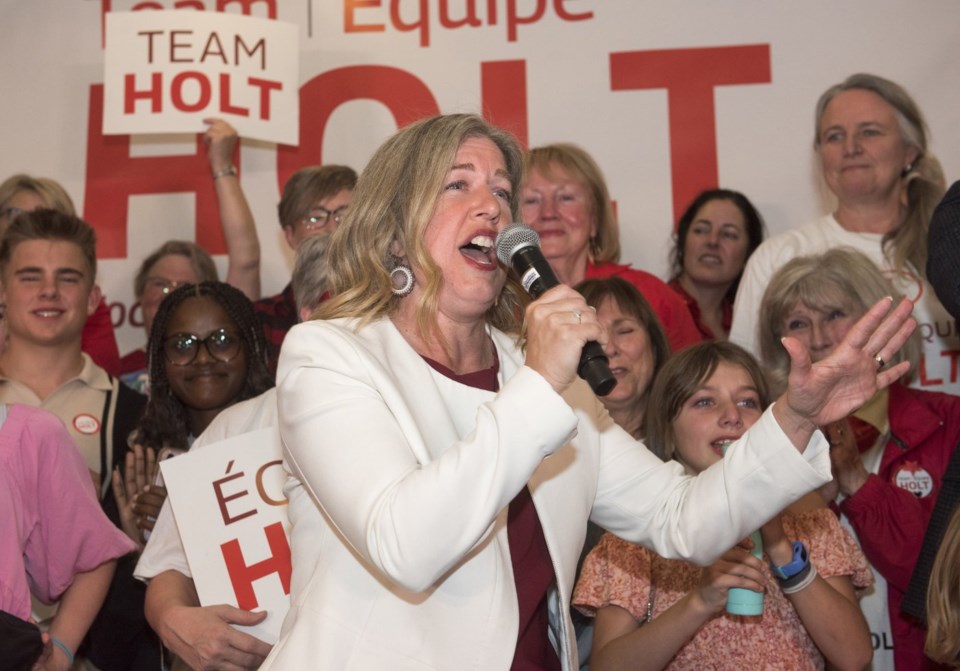FREDERICTON — Susan Holt, New Brunswick's premier-designate, met with her newly elected Liberal team on Thursday and announced their top priorities for the coming weeks.
Having already announced a four-person transition team, Holt confirmed that she and the others would be officially sworn in as members of the legislature on Nov. 2.
"This Holt government is going to hit the ground running, and the work has already started," she told a news conference in Fredericton after completing her first face-to-face meeting with the 30 other members of the Liberal caucus.
"We're going to lead New Brunswick through the challenges we are facing in health care, in housing, in education."
In Monday's provincial election, the Liberals won a convincing majority with 31 of the legislature's 49 seats, while the Progressive Conservatives led by Blaine Higgs won 16 and the Greens held two.
On Thursday, Holt said her government plans to move quickly on several campaign promises, including the provision of financial incentives to nurses.
"We don't want to lose another nurse at a time when our health-care system is so fragile," Holt told reporters gathered outside a hotel in downtown Fredericton, her entire caucus standing behind her.
She said the Liberals are hoping to implement other commitments before the holiday season, including removing the 10 per cent provincial sales tax from electricity bills, imposing a rent cap and eliminating the gas tax, saving motorists four cents per litre of fuel.
The premier-designate also repeated her platform commitment to provide women with better access to abortion services by amending a provincial regulation known as 84–20. That rule states abortions are not eligible for provincial funding unless they are performed in an approved hospital.
Surgical and medication abortions are currently performed at the two hospitals in Moncton and the hospital in Bathurst. A private abortion clinic in Fredericton known as Clinic 554 closed in January.
During a visit to the province in May, Prime Minister Justin Trudeau said closure of the clinic and "the unwillingness (of the previous Progressive Conservative government) to engage in allowing women to actually choose what happens to their future and their bodies is a disgrace."
On Monday, Holt said: "We're going to make sure that abortions are covered in New Brunswick .... Abortion is health care, and people in New Brunswick need better access to abortion. There are places that are ready to deliver those services."
Holt confirmed that she had met with Higgs earlier in the day to talk about transition planning, but she did not disclose details of that discussion. She also confirmed the legislature would resume sitting next month, but she did not say when.
On another front, the Liberal leader said she was worried about the federal Liberal government's decision Thursday to greatly reduce immigration targets.
"I don't think that there's a long-term-care facility in New Brunswick that would be open today if it weren't for the newcomers who have come to help care for seniors," she said. "We need to be very careful and thoughtful about how we manage immigration."
Holt went on to suggest the new targets could also hinder hiring in construction, exacerbating the province's housing crisis, and she also pointed to Ottawa's decision to reduce international student study permits.
"I'm really concerned about those moves. We need to have thoughtful conversations about what New Brunswick needs to grow our economy, to address our health-care and housing challenges and to move forward with the kind of strong post-secondary education system that our province benefits from.
This report by The Canadian Press was first published Oct. 24, 2024.
— By Michael MacDonald in Halifax
The Canadian Press



